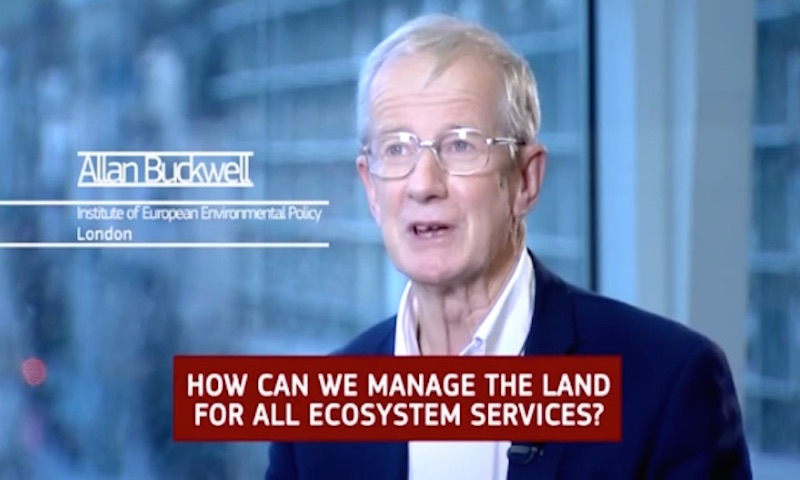Alan Buckwell on Expo Milan 2015

Universal Expositions, or Expo, are international fairs held generally at five year intervals nowadays featuring a chosen theme. The earliest national Expo was the French industrial expo of 1844, and the first World Expo was The Great Exhibition of Crystal Palace in Hyde Park, London, in 1851. The theme of the 2010 Expo in Shanghai was Better City – Better Life.
Given the revival in the last several years of global concerns about food security, and perhaps natural in Italy with its strong food culture, the theme for the current Expo which runs from 1 May to 31 October is “Feeding the Planet – energy for life”. The expo involves 147 countries, it occupies 200 hectares of the north of Milan, and is hoping to welcome 20 million visitors, who will find spectacular architecture, stunning food from all over the world, and great fun!
Naturally, because it is located in Europe, the European Union has given full support to Expo. The EU’s contribution is being coordinated through DG JRC – the Joint Research Centre – this reflects the decision to focus the major EU contribution on research relating to the theme of the Expo. To this end the EU set up a Scientific Committee chaired by ex-Commissioner Franz Fischler to coordinate this input. The research theme is being pursued through three main activities: a discussion paper produced by the Scientific committee, a series of forty workshops and conferences at Expo on a full range of issues concerning the production and consumption, sustainability, safety and nutritional quality of food, and a public consultation on the priorities for European research in these areas. The hope is that the outcome of these activities will be a strong consensus on the most constructive and enduring contribution Europe can make to feeding the growing population of our planet and thus providing energy for life.
The discussion paper “The Role of Research in Global Food and Nutrition Security” was published by Commissioner Navracsics on 13 April in Brussels, and its first discussion with scientists was in Milan on 8 May. Meanwhile an online public consultation was launched and this can be found at: https://europa.eu/expo2015/online-consultation.
The seven themes identified by the discussion paper illustrate the complex range of issues involved. They are:
Improve public health through nutrition – healthy and sustainable consumption;
Increase food safety and quality;
Reduce losses and waste – more efficient food chain;
Manage the land for all ecosystem services – sustainable rural development;
Increase agricultural outputs sustainably – sustainable intensification;
Understand food markets in an increasingly globalised food system;
Increase equity in the food system.
The paper stresses the complex interrelations between these issues, the fact that none is pre-eminent, all have to be tackled, and that this requires a multi-disciplinary approach. It was a conscious decision to head the list with the challenges of improving nutrition and health, both the challenges of severe under-nutrition as well as the problems arising from obesity. This serves to emphasise that food security is not only, or even mostly, about producing more food. Access to food, consumption patterns, trade, and the way the food is produced are equally important.
It is intended that the results of the consultation, together with reports which are being compiled on all the scientific events taking place at Expo will shape a set of recommendations coming from this activity to be written up in a final report of the Scientific Committee. This should be a lasting European contribution to assist global food and nutrition security. Readers are urged to participate in this consultation to help shape the European response to the global food challenge.
Read the full article on CAP2020: https://bit.ly/1BdBKe4
